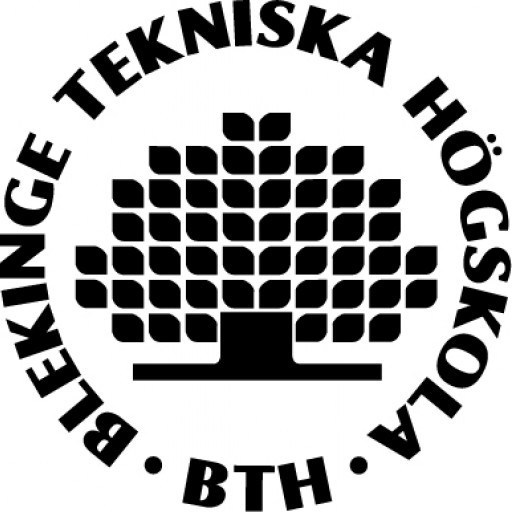Photos of university / #blekingetekniskahogskola
The Master’s Programme in Electrical Engineering with Emphasis on Signal Processing at Blekinge Institute of Technology offers students an advanced education in the field of electrical engineering, focusing specifically on signal processing techniques and their applications across various industries. This program aims to equip students with theoretical knowledge and practical skills necessary for designing, analyzing, and implementing sophisticated signal processing systems used in telecommunications, multimedia, biomedical engineering, automation, and other technological domains. Throughout the program, students engage with core topics such as digital signal processing, image processing, speech analysis, machine learning algorithms, and embedded systems. The curriculum combines rigorous coursework with hands-on projects, fostering an environment where theoretical concepts are directly applied to real-world problems. Students have opportunities to work with industry-standard hardware and software, enhancing their practical competencies and preparing them for roles in research and development, engineering consultancy, or technical management. The program also emphasizes interdisciplinary collaboration, encouraging students to develop problem-solving skills in complex scenarios involving data analysis, systems design, and signal optimization. With access to state-of-the-art laboratories and research facilities, students can undertake innovative projects and participate in cutting-edge research initiatives. Graduates of this program will be well-prepared for diverse career opportunities in sectors such as telecommunications, automation, multimedia processing, and health technology. They will also be equipped to pursue doctoral studies or specialized certifications to further enhance their expertise in signal processing and related fields. The program is taught in English, attracting students from around the world, and provides a multicultural learning environment that fosters international collaboration and professional networks. Overall, the Master’s Programme in Electrical Engineering with Emphasis on Signal Processing at Blekinge Institute of Technology is designed to develop highly skilled engineers capable of advancing technological innovation and solving complex challenges in the rapidly evolving landscape of electrical engineering.
The Master’s Programme in Electrical Engineering with Emphasis on Signal Processing at Blekinge Institute of Technology offers students a comprehensive education in the field of electrical engineering, focusing specifically on advanced signal processing techniques. Throughout the programme, students will develop a deep understanding of digital signal processing, statistical signal analysis, and the design of algorithms for processing signals in various applications. The curriculum combines theoretical foundations with practical skills, ensuring that graduates are well-equipped to address real-world challenges in communication systems, audio and multimedia processing, biomedical signal analysis, and image processing.
The programme begins with core courses in electrical engineering fundamentals, including circuit theory, electromagnetism, and mathematics for engineering. As students progress, they delve into specialized subjects such as digital signal processing, adaptive filters, machine learning for signal analysis, and filter design. Emphasis is placed on hands-on laboratory work and project-based learning, providing opportunities to work with cutting-edge software tools and hardware platforms used in industry and research.
Students will learn to analyze and interpret complex signals, develop algorithms for noise reduction, feature extraction, and data compression, and implement solutions for intelligent systems in various domains. The programme also covers communication systems, wireless networks, and embedded systems, highlighting their intersection with signal processing techniques. Additionally, courses in sensor technology and data acquisition prepare students for interdisciplinary work involving hardware-software integration.
Throughout the programme, students may have opportunities to engage in collaborative projects with industry partners, attend seminars by professionals, and undertake a master thesis project that addresses a relevant problem in the field. The programme aims to prepare graduates for careers in industry, research, or doctoral studies, equipping them with the technical expertise, analytical skills, and innovative mindset necessary to contribute to the advancement of signal processing and electrical engineering. Graduates will be capable of designing intelligent signal systems, improving communication networks, and developing new technologies that enhance multiple aspects of modern society.
The Bachelor's programme in Electrical Engineering with Emphasis on Signal Processing at Blekinge Institute of Technology requires applicants to have a strong background in mathematics, physics, and electrical engineering principles. Prospective students are expected to present documented proficiency in English, typically demonstrated through standardized tests such as TOEFL or IELTS, ensuring they can follow the technical coursework and participate actively in classroom discussions. The programme emphasizes foundational coursework in circuit theory, digital systems, and programming, with specific focus on advanced signal processing techniques, vehicle electronics, and wireless communication systems. To qualify for admission, applicants must submit academic transcripts that demonstrate their preparation for engineering studies at a university level, including coursework in mathematics (such as calculus and linear algebra), physics, and computer science.
In addition, prior experience with software tools relevant to signal analysis and digital communication, such as MATLAB or Simulink, is beneficial. The programme is designed to develop students' practical skills through laboratory exercises, project work, and collaborations with industry partners, making relevant work experience an advantage during the admission process. The degree programme aims to prepare graduates for careers in the telecommunications, automotive, and electronics industries, focusing on designing, analyzing, and implementing signal processing algorithms and systems. Students are encouraged to participate in internships and thesis projects in relevant sectors to gain real-world experience. The programme periodically updates its curriculum to reflect technological advances and market demands, ensuring that students acquire current knowledge and skills necessary for innovative development in electrical engineering and signal processing domains.
The Bachelor's programme in Electrical Engineering with Emphasis on Signal Processing at Blekinge Institute of Technology offers various financing options to support international and domestic students throughout their studies. The primary source of funding for students is the scholarship programmes provided by the university and external organizations, which are often merit-based and aimed at reducing the financial burden associated with higher education. Blekinge Institute of Technology also encourages students to seek external scholarships, grants, and sponsorships from governmental agencies, private foundations, and industry partners relevant to engineering disciplines.
For students supported by government funding or with access to national student loan schemes, the Swedish State Financial Aid (CSN) provides considerable assistance, allowing eligible students to receive loans and grants to cover tuition fees and living expenses. International students who are citizens of countries outside the European Union/EEA may be required to pay tuition fees, but they can apply for scholarships that may cover part or all of their tuition costs. In addition, some students choose to supplement their funding through part-time employment opportunities available on or near the campus, with the university providing guidance and support on how to balance work and studies effectively.
Blekinge Institute of Technology also emphasizes entrepreneurial and industry collaborations that can offer internships and cooperative education placements, which sometimes include stipends or financial benefits. Students are advised to actively explore these options to enhance their financial stability during their academic journey. The cost of living in Karlskrona, the campus city, is generally lower compared to other Swedish cities, which can reduce overall expenses and facilitate manageable financing plans.
Furthermore, the university's career services provide assistance in finding employment, both during studies and after graduation, which can help students sustain themselves financially and gain practical experience. While specific scholarship amounts, application procedures, and eligibility criteria are updated periodically, students are encouraged to consult the university’s official website and the student financial aid office for the most current information regarding available funding opportunities. Overall, the combination of university-supported scholarships, government aid, external sponsorships, and part-time work opportunities provides a comprehensive framework to assist students in financing their education in Electrical Engineering with an emphasis on Signal Processing at Blekinge Institute of Technology.
The Master’s Programme in Electrical Engineering with an emphasis on Signal Processing at Blekinge Institute of Technology offers students a comprehensive education in modern electrical engineering principles, with a specialized focus on the analysis, design, and implementation of signal processing systems. This program aims to equip students with advanced skills in digital and analog signal processing techniques, including filtering, compression, synthesis, and analysis crucial for various technological applications. Throughout the program, students engage with both theoretical foundations and practical applications, preparing them for roles in industries such as telecommunications, multimedia, automation, and sensor technology.
The curriculum typically includes courses in advanced digital signal processing, control systems, embedded systems, and machine learning methods relevant to signal analysis. Students also gain practical experience through laboratory work, projects, and collaborations with industry partners, enhancing their ability to develop innovative solutions for real-world problems. The program emphasizes the importance of interdisciplinary knowledge, integrating concepts from electronics, computer science, and mathematics, to foster a holistic understanding of signal processing techniques.
Students have access to state-of-the-art laboratories and research facilities, enabling hands-on learning and experimentation. The program encourages active participation in research projects, seminars, and workshops, which serve to deepen understanding and promote innovation within the field. Graduates of the program are well-prepared for careers in research, development, and advanced technical roles across various sectors, including telecommunications companies, consumer electronics firms, and autonomous systems.
Additionally, the program at Blekinge Institute of Technology is designed to be international in scope, offering students the opportunity to participate in international exchange programs, collaborative research, and industry placements abroad. Language of instruction is primarily English, attracting students from around the world and fostering a diverse academic environment. The program also emphasizes sustainable development and responsible innovation, aligning with current global technological and ecological needs. Upon completion, graduates earn a Master of Science degree in Electrical Engineering with a specialization that opens doors to further doctoral studies or directly to professional engineering careers in a rapidly evolving technological landscape.








